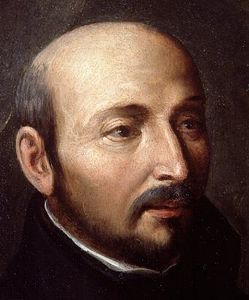A Quote by John F. Kennedy
With a good conscience our only sure reward, with history the final judge of our deeds, let us go forth to lead the land we love, asking his blessing and his help, but knowing that here on earth God's work must truly be our own.
Related Quotes
Like Muslims we assume that God will judge us "on balance." If our good deeds outweigh our bad deeds, we will arrive safely in heaven. But, alas, if our evil deeds outweigh our good ones, we will suffer the wrath of God in hell. We may be "marred" by sin but in no wise devastated by it. We still have the ability to balance our sins with our own righteousness. This is the most monstrous lie of all.
I testify to you that God's hand has been in our destiny. I testify that freedom as we know it today is being threatened as never before in our history. I further witness that this land-the Americas-must be protected, its Constitution upheld, for this is a land foreordained to be the Zion of our God. He expects us as members of the Church and bearers of His priesthood to do all we can to preserve our liberty.
The world is God's workshop; the raw materials are His; the ideals and patterns are His; our hands are "the members of Christ," our reward His recognition. Blacksmith or banker, draughtsman or doctor, painter or preacher, servant or statesman, must work as unto the Lord, not merely making a living, but devoting a life. This makes life sacramental, turning its water into wine. This is twice blessed, blessing both the worker and the work.
We have God's promise that what we give will be given back many times over, so let us go forth from here and rekindle the fire of our faith. Let our wisdom be vindicated by our deeds. We are told in II Timothy that when our work is done, we can say, ``We have fought the good fight. We have finished the race. We have kept the faith.'' This is an evidence of it.
We can ignore even pleasure. But pain insists upon being attended to. God whispers to us in our pleasures, speaks in our conscience, but shouts in our pains: it is His megaphone to rouse a deaf world....No doubt pain as God's megaphone is a terrible instrument; it may lead to final and unrepented rebellion. But it gives the only opportunity the bad man can have for amendment. it removes the veil; it plants the flag of truth within the fortress of the rebel soul.
Do we not see God at work in our circumstances? Dark times are allowed and come to us through the sovreignty of God. Are we prepared to let God do what He wants with us? Are we prepared to be separated from the outward, evident blessings of God? Until Jesus Christ is truly our Lord, we each have goals of our own which we serve. Our faith is real, but it is not yet permanent. And God is never in a hurry. If we are willing to wait, we will see God pointing out that we have been interested only in his blessings, instead of God Himself.
Prayer is the converse of the soul with God. Therein we manifest or express to Him our reverence, and love for His divine perfection, our gratitude for all His mercies, our penitence for our sins, our hope in His forgiving love, our submission to His authority, our confidence in His care, our desires for His favour, and for the providential and spiritual blessings needed for ourselves and others.
Prayer is not appointed for the furnishing of God with the knowledge of what we need, but it is designed as a confession to Him of our sense of the need. In this, as in everything, God's thoughts are not as ours. God requires that His gifts should be sought for. He designs to be honoured by our asking, just as He is to be thanked by us after He has bestowed His blessing.
But we are pledged to set the world free. Our toil must be in silence, and our efforts all in secret. For in this enlightened age, when men believe not even what they see, the doubting of wise men would be his greatest strength. It would be at once his sheath and his armor, and his weapons to destroy us, his enemies, who are willing to peril even our own souls for the safety of one we love. For the good of mankind, and for the honor and glory of God.
The mystery of the spiritual life is that Jesus desires to meet us in the seclusion of our own heart, to make his love known to us there, to free us from our fears, and to make our own deepest self known to us Each time you let the love of God penetrate deeper into your heart it leads to a love of ourselves that enables us to give whole-hearted love to our fellow human beings. In the seclusion of our hearts we learn to know the hidden presence of God; and with that spiritual knowledge we can lead a loving life.
The idea of a judgment of history is secularism's vain, meaningless, hopeless, pathetic attempt to devise a substitute for what the great Abrahamic traditions of faith know is the final judgment of almighty God, who is not an impersonal force. History is not God. God is God. History is not our judge. God is our Judge.
































